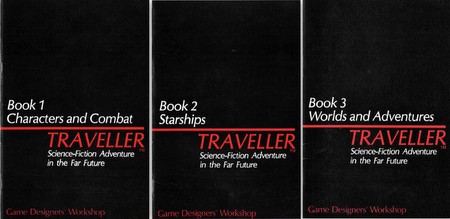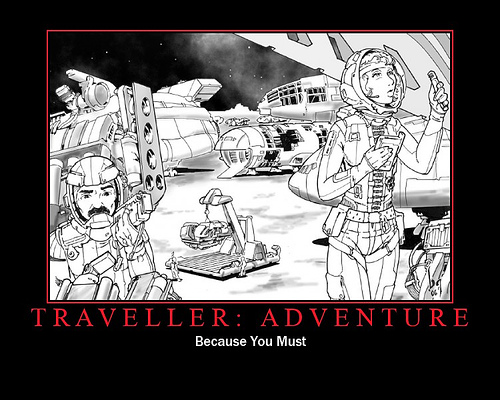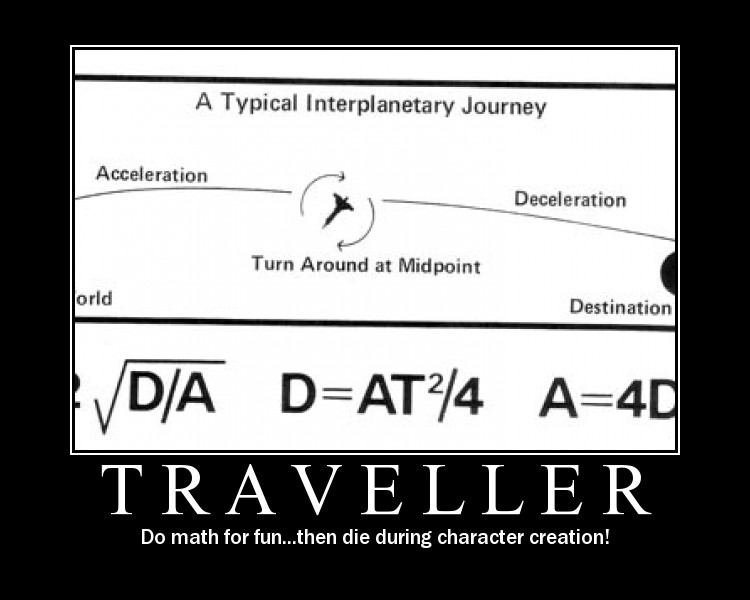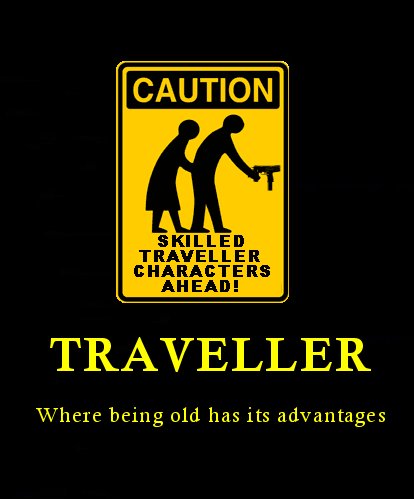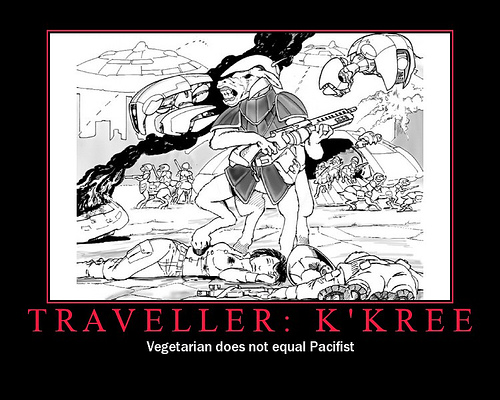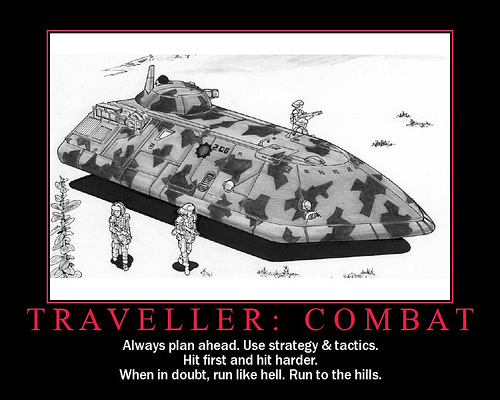In a game called Traveller, you know there will be VEHICLES
 |
| Who needs contra-gravity when you've got one of these? |
- Air/raft (the basic contragravity car)
- ATV (All Terrain Vehicle)
- Ship's Boat
- Aircraft, of several types
- Tracked vehicles
- Wheeled vehicles
- Watercraft, of several types
- There was also a Vehicle cascade skill, where the player could choose a type
"Vehicle skill . . . may also be used for assistance in repairing and maintaining a vehicle".
I had always gone with general Mechanical skill as the necessary to repair a vehicle, but the skill is actually a vehicle-specific mechanical skill.
There are ground huggers, wheeled for easy terrain, roads & prairies and such, and tracked for rougher ground. Aircraft and contra-gravity craft are for covering a lot of ground quickly, on worlds where the inhabited areas are widely spread. There will be waterborne exploration as well, both on the surface (hovercraft, large boats) and in the depths (submarines).
 |
| Still awesome, even in the 51st century. |
Ship's boat is included with the Vehicle skills despite it being for operating small space craft carried aboard larger ones. Ship's Boats can go from the surface to orbit and beyond, which points to inhabited orbital stations, or colonies on the moon, too far for an air/raft but too close to need a starship.
Conclusion
 |
| Adventure calls. Are you up for it? |
- a big, potentially infinite galaxy
- open to travel and exploration
- inhabited in some places and unexplored in others
- primitive in some places and advanced in others
- potentially unified culturally if not politically
- inhabited by several cultural/political groups which either cooperate or conflict with each other
- expanding its cultural reach or shrinking from the frontier
- a dangerous place to go about in, whether in space or on land
- subject to wars, crime, and all manner of plagues upon mankind
- ripe with opportunity for the skilled, the bold and the daring.
- One where the PCs can be major powers or part of the masses.
- Limited only by the imagination of the players & the referee.
Does this change anything about the way we play Traveller in the 21st century?
Is there a significant aspect of the original skills that I'm missing?
For another POV on the Classic Traveller skills, check out this post at Jeffro's Space Gaming Blog.






